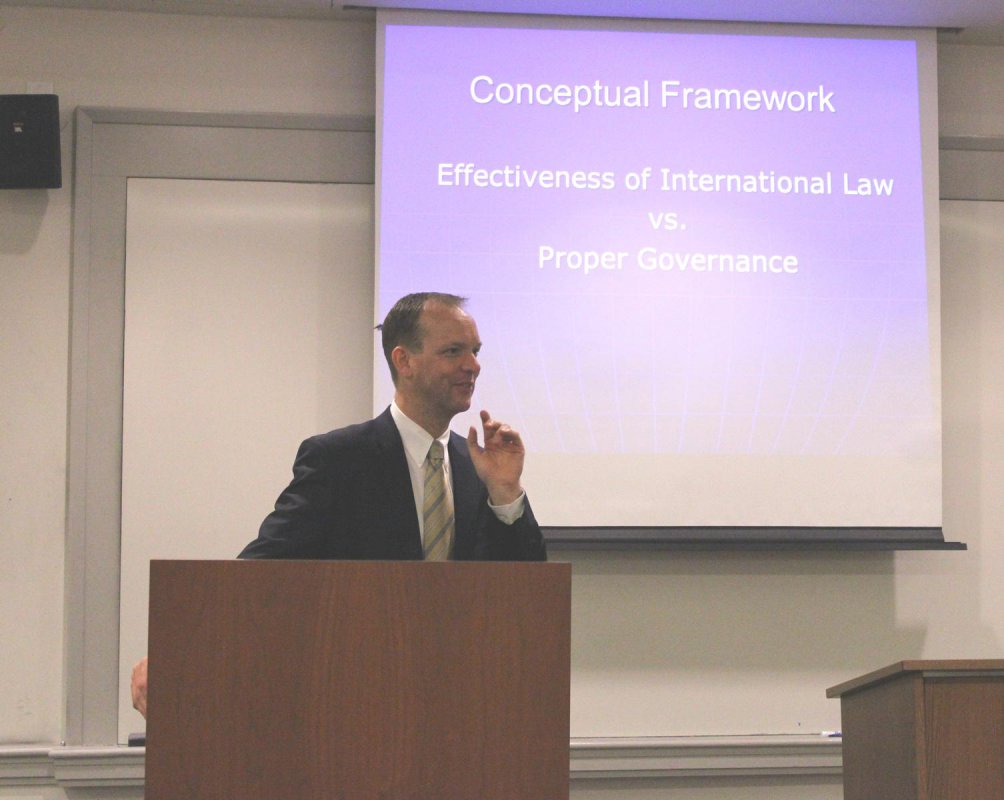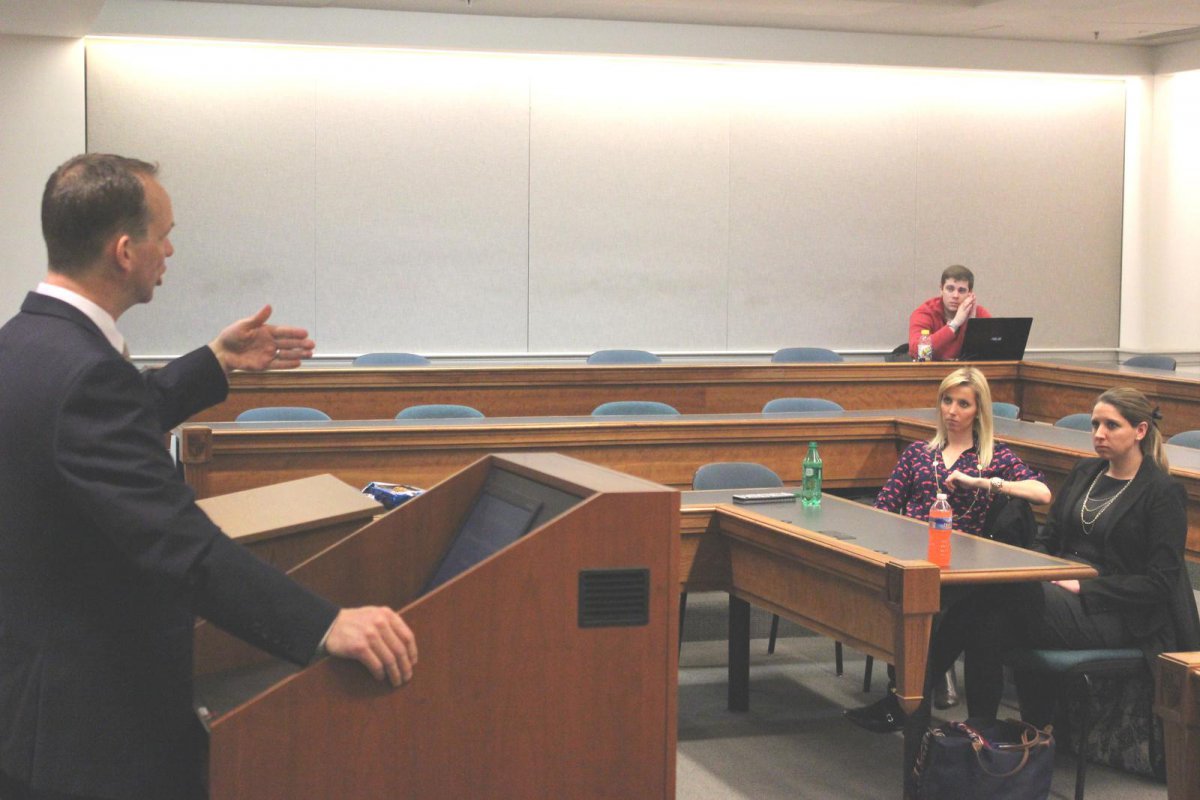
Brigham Young University law school Professor David Moore spoke at the Columbus School of Law on March 3rd, discussing "Is International Law U.S. Law?" at the invitation of the law school's Federalist Society.
The answer to the question posed by the title of his lecture appears not to be a definitive yes-or-no. Moore explained that like some other provisions of the United States Constitution, language regarding the status carried by international law within American jurisprudence is somewhat cloudy, and has been open to differing interpretation by courts.

Moore began by outlining the history and status of foreign treaties under U.S. law, which are recognized as the law of the land but are not always immediately enforceable. He also spent some time framing the debate over the concept of customary international law (CIL), which remains the object of a scholarly tug-of-war over a "modern" interpretation that accepts the imposition of CIL by domestic courts in the absence of authorizing legislation from the political process; and the "revisionist" position which holds that customary international law lacks Constitutional standing to be applied by American courts. Moore noted that major court decisions in recent decades have supported both points of view. Moore is a scholar of U.S. foreign relations law, international law, and international human rights. His publications have appeared in the Harvard, Columbia, Northwestern, and UCLA law reviews. Before joining BYU's faculty, Moore clerked for Justice Samuel A. Alito, Jr., during the U.S. Supreme Court's 2007 term.
